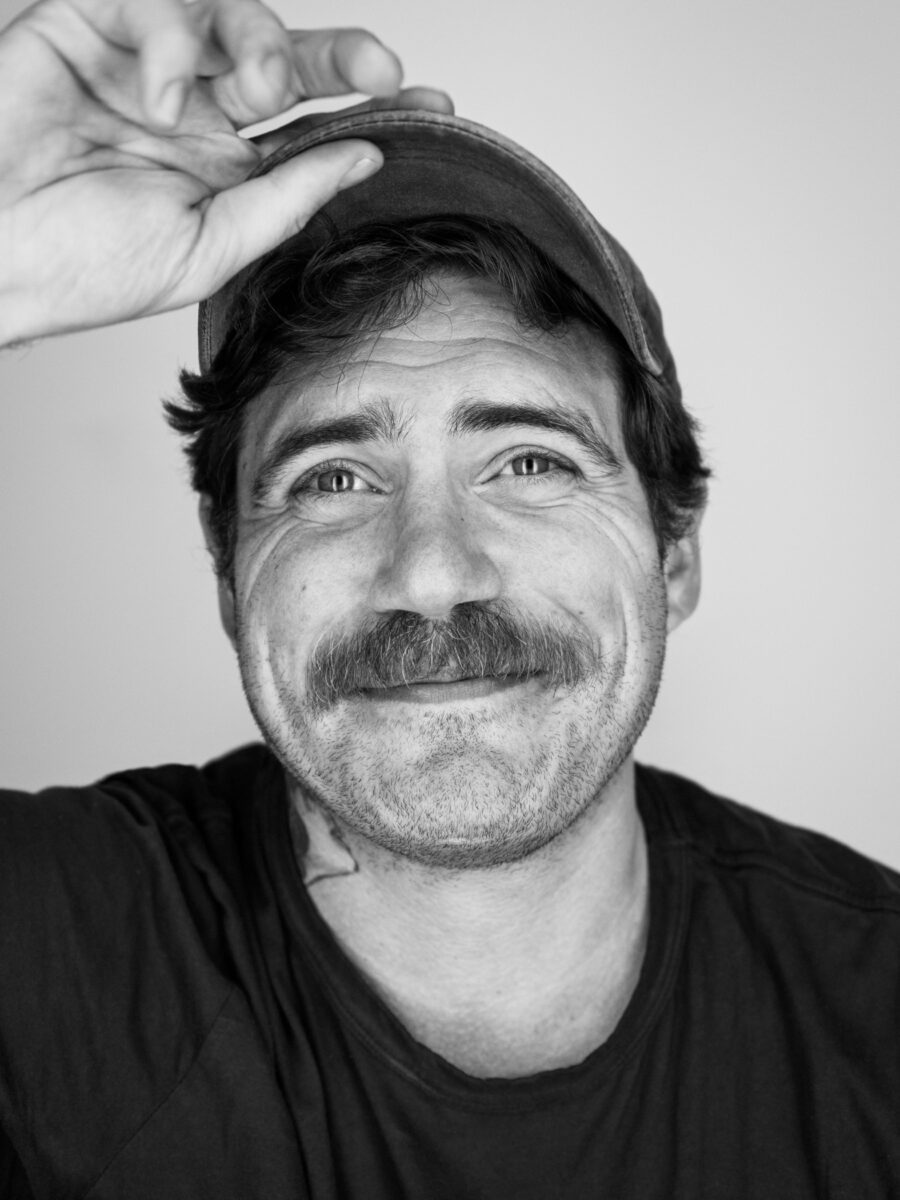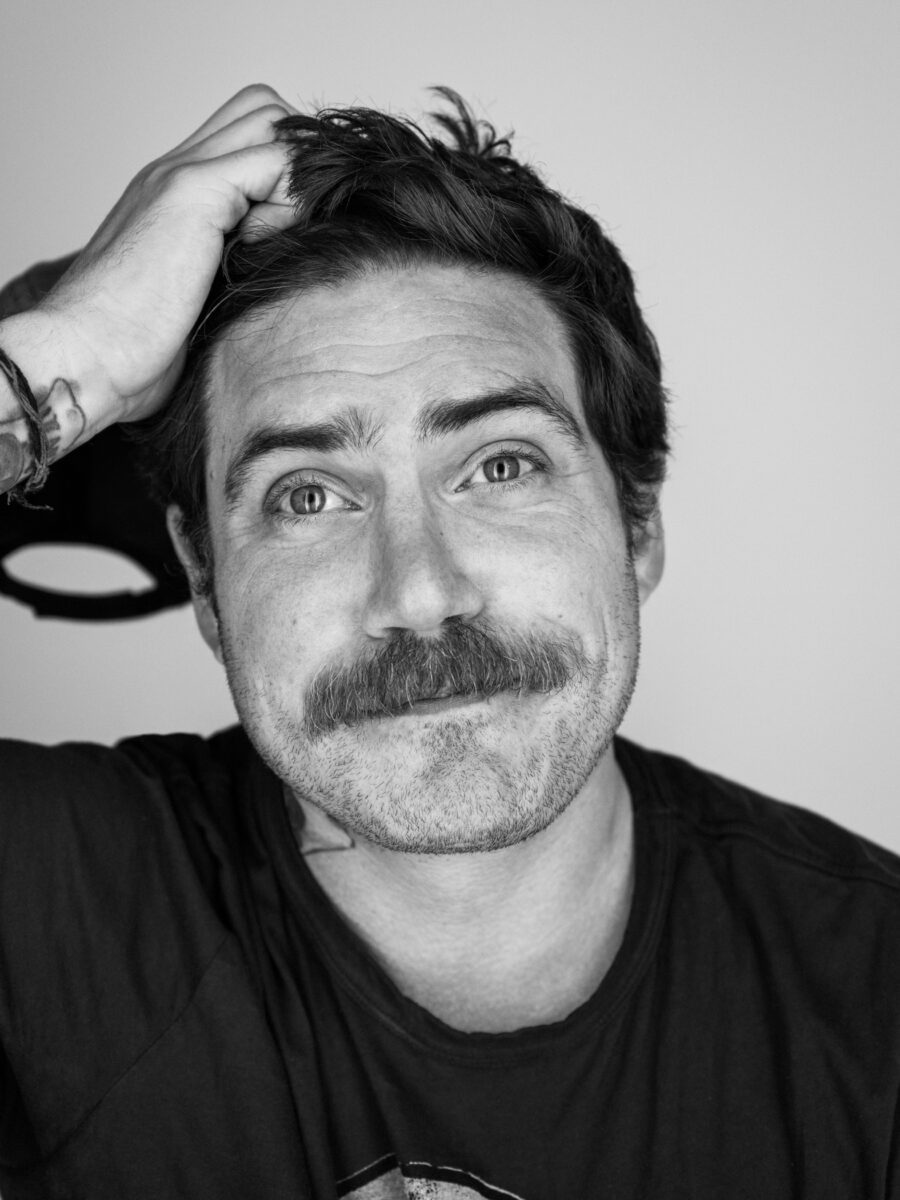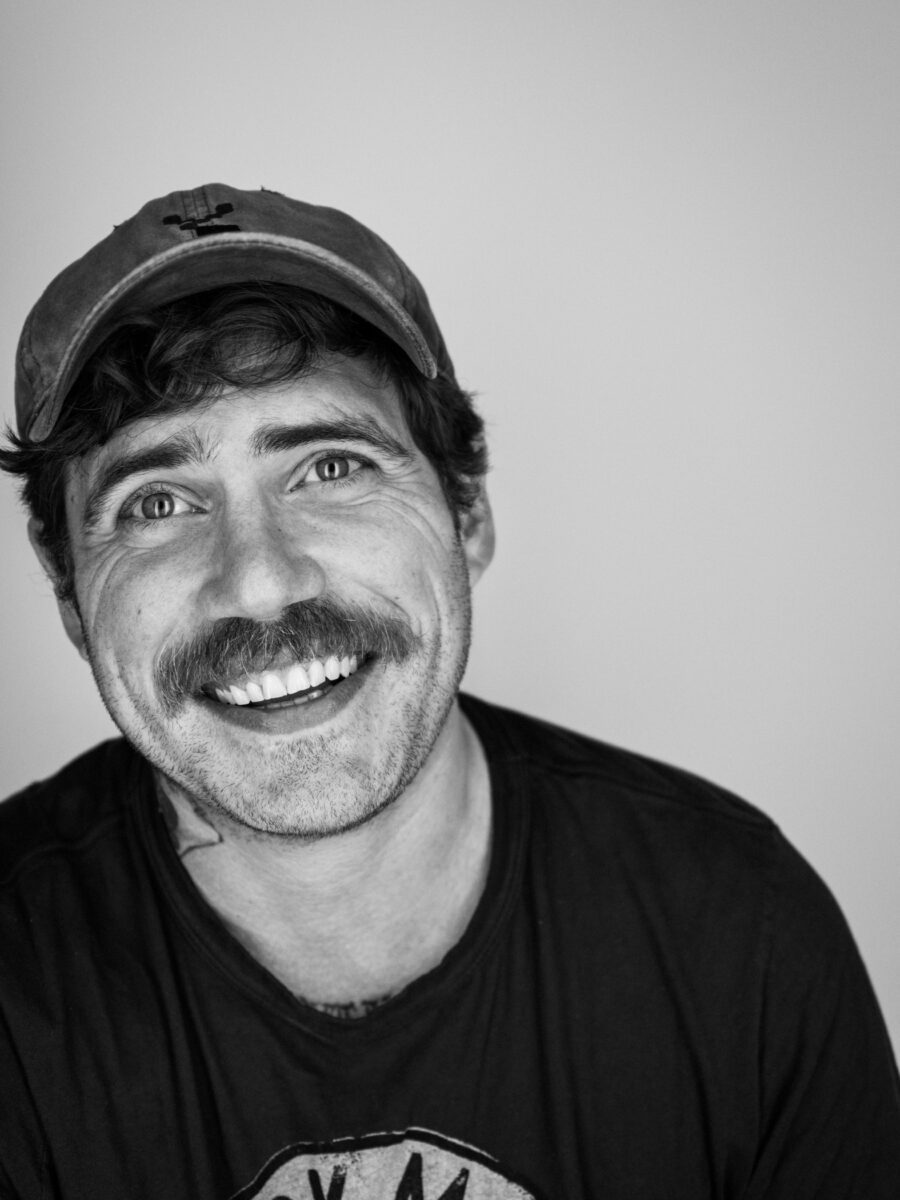In Part 02 of our exclusive interview with Gordon Goner, first published in NFT Magazine, we look ahead to the future of fine art NFTs. The trajectory of the traditional art world (also referred to as the “white cube”) has significantly remained unchanged, anchored in suspended animation. While auction houses and select institutions have expanded the breadth of their programming and collections to include NFTs, the dynamism and agility of the metaverse sparks curiosity, community, and opportunity for creators and collectors alike to thrive. As Yuga Labs celebrates the third anniversary since the Bored Ape Yacht Club catapulted onto the blockchain, Goner reflects on the effects of the post-Bored Ape world, considers the state of the Post-Internet era, and offers his own philosophy that has guided his creative journey.
On January 3, 2024, you shared a tweet that addressed a question on the tip of everyone’s tongue- those who work in the traditional white cube art world and those who work in the NFT space. Can the two worlds coexist? Will one supersede the other? Where do we fit in? “I never participated in the fine art scene in whatever city I lived in because it was always filled to the brim with pretentious elitists and social climbers. I’m not saying everyone in NFTs is the coolest person ever. But it is FAR more welcoming and unburdened by pretension than the traditional art space. Fine Art NFTs are going to thrive on a massive scale. It’s the platform for a kind of post-internet renaissance. I have no data to support that. I just know it’s true.” What are your thoughts about the future of fine art NFTs?
That’s a really good question. The thing that interested me the most about writing that tweet was that I had read this Artnews article talking about the definition of “post-internet.” And I think that term is like a lot of art terms, kind of cringe in a certain sense. Like, it’s easy to make fun of these kinds of things. But I liked this definition so much that it inspired me to write that post. Which was that “post-internet art” was artwork, and now I’m paraphrasing, it was artwork that was specifically made for the internet. And that really inspired me when I read that; I thought, “That’s the kind of work that I’m interested in. That falls right in line with my ideas of the metaverse. That falls right in line with the importance of provenance.” When I get asked—I was asked somewhere on that tweet thread—something about the value of digital art, be it an NFT or otherwise, and whether or not it was as valuable as having a physical piece, a hardcopy, in my living room for instance. Of course I believe that this digital work has more merit or just as much merit as the physical piece. If I didn’t, I wouldn’t be here.
Do you believe the introduction of the Apple Vision Pro is helping more people understand how the virtual world can integrate into the physical world?
Things like the Apple Vision Pro, I view it as sort of like an extraordinary beta for everyone to understand where we’re heading. I agree with folks like Beeple that there isn’t a tremendous use case for it right now. But I think we’re seeing this kind of this explosion of foresight, from a lot of people, within their minds like, “Whoa, this is the future. This is where this is all heading.” For people who have been involved in NFTs and crypto, this kind of stuff is obvious. I think to believe in this space means having a certain level of futurism in your bones. We’ve known that this is the direction that society has been heading for years now. Whether we’re thinking about that from the perspective of the financial system, or whether we’re thinking about that from the perspective of digital art, or whether we’re thinking about this from the perspective of communities and the metaverse, we are thinking in this forward-thinking kind of way.
Does tuning into the digital world mean we’re turning our backs to the physical world and traditional collecting methods?
So the more plugged in you become, the more you’re going to start to appreciate NFT art. Because to someone chronically online, it matters much less what’s on their wall than what they can flex verifiably on the blockchain. Right now, the physical world is being supplemented by the digital experience, but eventually everything will be overtaken by the digital. I think we’re probably ten years away from that turning point, where the tables will have really, truly tipped in favor of digital versus physical life. And beyond that, it’s really like we’re plugging into the next simulation. Twenty years from now, I don’t even think we’re going to recognize the real world as being what it is today. Meaning, the digital world will seem more real. I think we’re going to exist in digital spaces more than we will exist in physical spaces. I’m a fan of the “white cube” gallery in a certain sense; a fan of the entire gallery model itself, but I’m much more a fan of the transition from older notions to newer ones; you can’t fight evolution. Art is constantly evolving.

As we continue moving away from the past, the digital world offers the ability to assume the identity of the person we always wanted to become. What inspired the genesis and adoption of the name “Gordon Goner?
We chose our names literally minutes before launching the Discord. If I had known how much the project would have blown up, I probably would have put much more thought into it. I can only speak for myself, but I think all the founders have answered this numerous times. “Gordon” was just a name I liked. And then “Goner” came from the fact that I saw myself as a goner. I’ve been sick for a third of my life at this point. At one point, I was really debilitated for about ten years. And now I’m sick again in a whole other lovely way. Illness is just a part of my life story. Calling myself a “goner” just made sense. It’s an honest representation of how I saw myself, at least at the time, and it’s an irreverent way of talking about myself. To call someone a “goner.” It has this feeling of someone who’s lived through battle.
What do you look for in other projects? What points are captivating to you? Who are you paying attention to?
My lens is, I don’t look at necessarily just the visual representation of a piece of work and go, “That’s what I care about!” What I care about is the whole scope of the project. I care about how much the entire experience feels like a work of art or feels compelling and how successfully it entertains me. I look for founders who are trying to impress me constantly by delivering that feeling of surprising yet inevitable. That is what I value. And so that can apply to a fine art artist, that can apply to a very Degen and silly 10k PFP project, that can apply to the whole smorgasbord of everything that exists within the space. And then the last thing is just how much a piece feels like it’s authentic. That’s a very difficult thing to talk about. But there are a lot of artists in the space who feel very authentic. And then there are a lot who feel like they’re here to make some money. And to me, it’s just so abundantly obvious who is who. And I’m only interested in the former. I’m only interested in people who are here authentically, not just as a way to make a quick buck. I’m here to be a part of an ongoing experience. I don’t like to buy something that feels like someone was here just because there was an opportunity. That’s fine if you view the opportunity, and it’s smart if you take advantage of the opportunity, but I’m interested in people who are here for the long haul.
You are one of a handful of people who have been instrumental in bringing NFT technology to a massive audience worldwide. To many, BAYC is the main reason for coming to the Web3 space. What kind of impact has that realization had on you?
The only people who give a shit about the impact we’ve had or the effort that we put into all this are already following us on Twitter. It’s kind of like this small world that knows how much we busted our asses to make this thing a reality. And they certainly appreciate and love us for it. And we love and appreciate them back for recognizing all of our hard work. Beyond that, it’s just nice to know that I was able to do something with my life for once. Again, I was so sick for so long. And during that time period, especially during the really dark days, which lasted about ten years, I was very depressed because I felt like, “Hey, I have all this potential in me and I want to show the world what I’m capable of.” And it was nice to finally be able to have a moment in time where I felt good enough, felt well enough, had a clear enough head, and partnered with just brilliant people to be able to accomplish something that mirrored an aspect of my ambition. And that contributed to something that I truly was so passionate about, which was online communities. That’s what had kept me sane for so long during my dark night of the soul. It’s nice to know that the impact is recognized by the people that matter to me. My problem is I always want to work on the next thing. And that’s been very frustrating as of late because I’ve gotten so sick again, first with heart failure and then with my colitis coming back. I’m just miserably ill all the time again. I’ve had to watch others run the ship and build without me, which is fine because they are all much more talented and smarter than me, but my ego doesn’t like it. I want to get back in the game of authoring. For however long I’m still sick, that will be the thing that I’m thinking about. It’s not the realization of our impact, or how many people we were able to bring into the space; I don’t care about any of that. It’s just the work I care about. I just care about the next sentence; I guess you could put it: I just want to get the next sentence right.

As an OG, the creator of the BAYC, and the holder of Bored Ape #1, you have long been considered an icon by many. Is there anyone in the space that you are a secret fan of?
I spent so many years really enjoying the Crypto Twitter space, not the NFT Twitter space, because the NFT Twitter space was basically infinitesimal at that point and was hardly on my radar back then, when I really had gotten interested in crypto. I really just loved the Crypto Twitter culture, which is where most of crypto is, just on Twitter or now X. That’s the space that interested me. So I’m secretly a fan of a lot of CT OGs. It was kind of the person who you could verify was worth millions and millions and millions of dollars, but you didn’t know their real name. And they had a really absurd profile picture. And they were up all night wanting to play “League of Legends.” All of that was really interesting to me, not just because I wanted to make money when I was very broke. (I was extraordinarily broke when we started this company.) But also because it felt like the next evolution of the financial system, and I liked that you didn’t need to have go to school for it. You just needed to be at the right place at the right time. And you just needed to pay attention. Greg said something early on in the Yuga Labs’ history. I think it was during an interview where he said something like, “Crypto was a space that rewarded your attention.” And I thought that felt very true to me. You could be extraordinarily successful in crypto if you were keyed in enough. And you didn’t necessarily need to have a lot of experience in really anything other than the internet itself. You just needed to pay attention.
What has your reaction been to any copycats that have gotten your attention?
After BAYC, it was a new world, right? The roadmap, the sort of utility that it brought, the sense of community in terms of a club model, was the thing that created a moment that allowed us to pierce the zeitgeist. And so the projects that came after us for a while were copycats, but I don’t want to say that in a derogatory way. And I don’t mean it in a derogatory way. For a long time, everyone was just trying well, not everyone, but many people; many projects were essentially just trying to do what we had done with their own spin and with their own flavor. And none of that ever got under our skin whatsoever. I like the idea of tribalism in so much as it’s essential to human nature. But the idea of putting down other tribes isn’t something that I think is advantageous. I think we should all just try and build the best shit you can, as fast as you can. Then competition becomes almost sportsmanlike. I think that’s good. That’s healthy. So since those days where people were basically waiting for us to make our next move, so that they could do some sort of copycat version of it, past that era into the sort of era that we’re in now, I think there are a lot of projects who are very hungry, are very fast moving, are able to capture the sort of meta-narratives that occur, that change almost weekly. And they’re nimble enough to be able to hit the right notes. I admire them. There are a lot of projects in the space, and I’m not going to name them, who are doing a phenomenal job at this. I can’t think of anyone in the space who is really doing honest, hard work that I’m not a fan of. I truly am a supporter of this whole ecosystem.
What do you see as future use cases of NFTs?
I don’t know. But the things that interest me right now are related to art. The things that interest me right now are 10k PFP projects—The two same things that exploded this space in the very beginning. Those same things were exciting to me then and now. Maybe there’s going to be some extraordinary use-cases for NFTs all across all kinds of industries eventually. But right now, it’s just the same-old bread and butter. I’m interested in digital identity. I’m interested in gaming. That’s the thing that is very divisive in NFTs right now, partly because a typical NFT collector doesn’t necessarily give two shits about a gaming NFT. But it really is the thing which will explode this space again, and bring a ton of new people in. Once gamers adopt NFTs, this space will transform completely.
What is one of your guiding principles?
The thing that matters to me on a day-to-day level, and has for many years, centers around persistence. It’s super embarrassing to admit this, but I don’t know anything about him. But there was a president named Calvin Coolidge. I don’t know his story other than the fact that he’s a president of the United States, but he had this quote that I once read. Honestly, it was because someone had misattributed to my father that I first found this quote, and it’s a quote that I think of quite a bit. If you will, give me the honor of reading such a stupid thing. I will read it to you, because it’s always rang as very true to me. Which is “Nothing in the world can take the place of persistence. Talent will not; nothing is more common than unsuccessful men with talent. Genius will not; unrewarded genius is almost a proverb. Education will not; the world is full of uneducated derelicts. Persistence and determination alone are omnipotent.” And it’s a very powerful quote because the older I get, the more I realize it’s true that some of the most successful people I know are dumb as fucking bricks. And some of the smartest people I know are wildly unsuccessful and wildly unhappy. The happiest people I know are persistent, above all else. And it took me a long time to find my path in life. I am extraordinarily stubborn. But when I was finally able to apply myself, holistically in mind, body, and spirit, as embarrassing as that is to say, to goals that were healthy for me- and applied that level of stubbornness and persistence to them. It really changed my entire life, so I live by the mantra of being very persistent.

Portraits of Gordon Goner by Rainer Hosch © 2024
